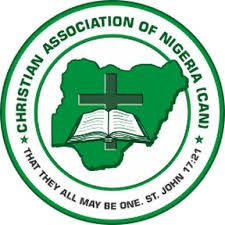
Stop playing politics of deceit over workers’ walaries
– Osun APC spokesman Tells Adeleke
The embattled Governor Ademola Adeleke has been told to stop playing politics of deceit to hoodwink the innocent inhabitants of the state and the outside world on the issue of payment of backlog of salaries inherited from the penultimate administration of former Governor Rauf Aregbesola.
Chief Kola Olabisi who is the Director of Media and Information of the Osun State chapter of the All Progressives Congress (APC) in a statement today stated that the employment of lies, fabrications and conjectures could only be injurious to the Adeleke administration which fate is hanging in the balance.
The Osun State APC Media Director said that it was satanic, cacodemonic and wicked for Adeleke to be misinforming the whole world that he is clearing the backlog of half-salaries owed by the Aregbesola administration when in actual fact it was only an approval that he gave for the payment of one month half salaries out of the backlog of the 30 months’.
Olabisi observed that Adeleke’s approval for the payment of the backlog of the half salaries is only a political pronouncement devised to curry the sympathy of the civil servants and members of the public in his current pitiable ordeal as a sacked governor in line with the verdict of the state governorship election petition tribunal of last Friday in Osogbo, the Osun State capital.
The Osun State APC Director of Media stated further that the staggered nature of the payment of the backlog of the half salaries of the state workers as contained in the government memo smacks of lack of sincerity and good intention on the part of Adeleke as such is to be paid four times in a year.
Olabisi querried Adeleke on how plausible and truthful could a government which is yet to finish the payment of the salaries of all the government workers for the month of November 2022 which had been appropriated by Adeleke’s predecessor be?
The APC Media Director wants to know why Adeleke refused to pay some public servants their last November salaries but shouting to the roof tops for a mere approval of one half salary out of 30?
Olabisi is keen to know why the embattled Governor Adeleke is reneging in his campaign promise that he would clear all the backlog of the half salaries of the state workers within 100 days of his administration?
He reminded the sacked governor that a gentleman’s words is his bond as he has broken one of his campaign promises with his approval of the payment of staggered half salaries of four times a year?
In Olabisi’s words: “Where are the foreign currencies that Adeleke boasted that he was having in abundance during his electioneering campaigns?
“One would have thought that Adeleke was having more than enough sufficient money in his family bank account to run the affairs of the state based on his constant boasting postures then?
“You can see now that you are in the saddle that running the affairs of a state is not a tea party but requires more than a dancing craft to make a positive impact on the governed?
“Adeleke should tell the whole world why he is still withholding the November 2022 salaries of all the political functionaries who were legitimately employed by his predecessor.
“Adeleke should know that paying one month of the 30 months owed workers is inconsequential considering the fact that his government in the last 60 days has earned over N60 billion allocation and other statutory incomes”, Olabisi explained.



